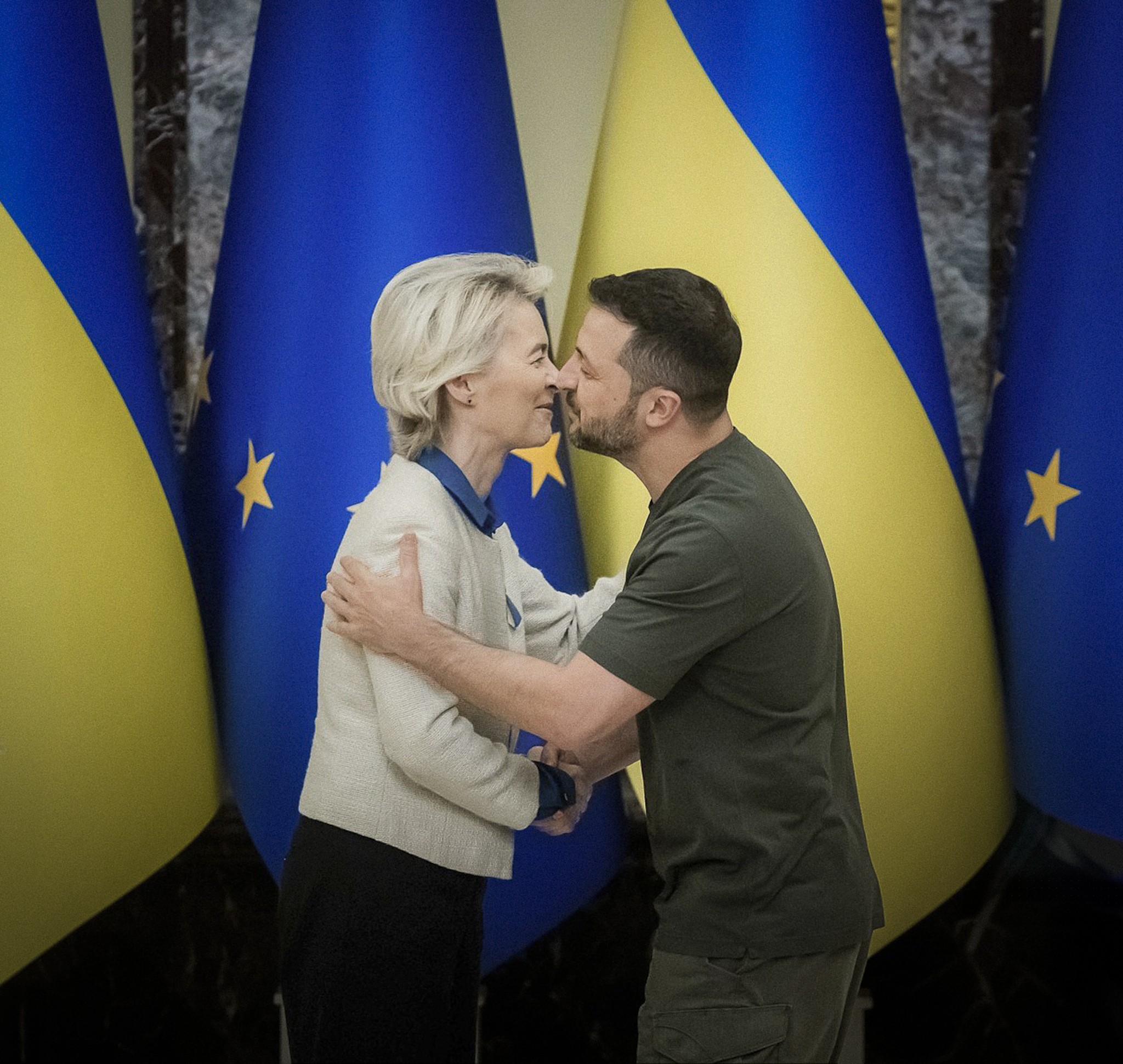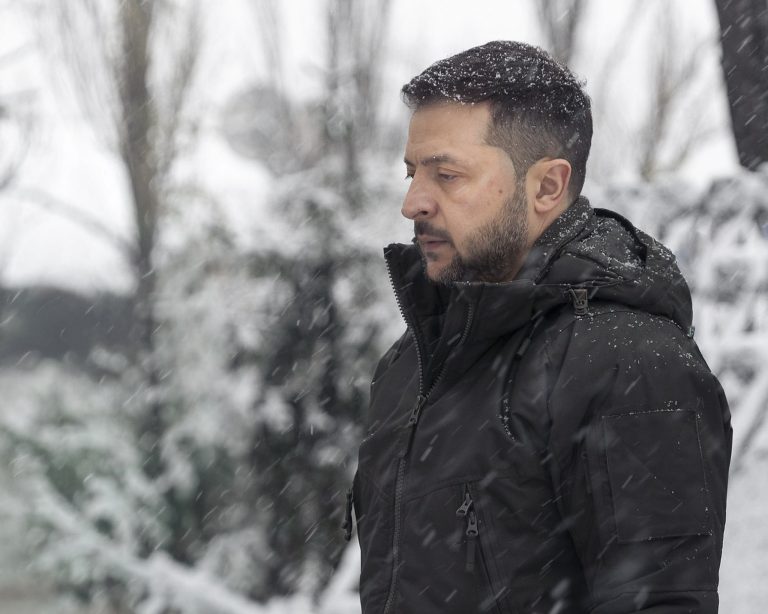Since the first months of the war, Ukraine's energy sector has been struggling with the problems caused by Russian missiles and drones. Moscow is also occupying the Zaporozhye nuclear power plant - the largest of its kind in Europe.
Even in 2022, therefore, there was already much speculation before the winter about how the local population would cope with freezing temperatures and whether there would be enough electricity and gas for industry, as well as for heating homes and keeping them running normally. The same articles then appeared in the following two years. And this one is no exception.
Two thirds of the pre-war capacity is gone
Politico recently pointed out that electricity generating capacity this year is almost twice as low as last year. Of the nearly forty gigawatts of installed capacity, just over a dozen are now gone.
The Russians have been attacking thermal power plants, whether gas or coal, in particular, in a big way, as strikes on nuclear reactors could cause disaster, escalate tensions, and drag even damaged countries beyond Ukraine's borders into the war.
That is why today the overwhelming majority of electricity in Ukraine is already generated by nuclear power, despite the fact that the Zaporozhye plant is controlled by the Russians. Indeed, the rest of the energy mix capacity, with the exception of a few percent from renewables, is under heavy fire.
But even energy from reactors is not a certainty for Kiev. This was shown by the recent attack on a key electricity substation, for which the Khmelnytskyi and Rivne nuclear power plants in north-western Ukraine had to cut production.
Similar strikes can cause forced shutdowns and a real crisis during the winter. Indeed, this infrastructure is essential for nuclear power plants, as they must also have external power sources for critical safety and cooling systems.
It is therefore not surprising that Gennady Ryabtsev, a senior researcher at Ukraine's National Institute for Strategic Studies, told Politico that although in a basic realistic scenario the electricity supply to industry and households will be limited to "eight to fourteen hours a day", a black scenario is also possible. If a severe winter sets in and the Russians threaten the output of nuclear power plants, periodic blackouts could last up to 20 hours.
A senior government official told the BBC that he believed it would "be the worst winter in Ukrainian history".
Attacks on gas infrastructure. Ukraine must import gas
Kiev's own actions are not making the situation easier for itself, but rather more difficult. Compared to the previous three winters, one key factor has changed. Ukraine's gas infrastructure is no longer protected by Moscow's financial interests.
The Russian military has struck at it several times over the course of this year, with the Kiev School of Economics estimating that more than half of its natural gas production capacity is knocked out.
Gas producers in Slovakia have similar information. The head of the Gas and Oil Association, Richard Kvasnovsky, said in an interview some time ago that "while gas was flowing through the country, Russia was mainly targeting the electrical infrastructure", with "the only major incident taking place in the spring of 2024, when the army bombed storage tanks in western Ukraine". However, after the transit ceased, "a series of very strong attacks began on Ukraine's upstream infrastructure", which met much of the needs there.

"Today we can say that half of that infrastructure has been scrapped and Ukraine now has to provide for its needs in other ways, through imports," Kvasnovsky said.
Meanwhile, Ukraine uses gas not only as a source of electricity, but mainly in industry and for home heating.
It is therefore a paradox that Ukrainian President Volodymyr Zelensky stopped the agreement on the continuation of gas transit, despite the fact that Kiev initially supported it.
In fact, the Slovak Gas Industry (SPP) had proposed to buy gas from Gazprom in Sudzha on the Russian-Ukrainian border, and the gas transported would not be officially Russian during its journey through Ukrainian pipes.
SPP chief Vojtech Ferencz was called by the deputy prime minister of the Ukrainian government in November and told that "Prime Minister (Denys) Shmyhal agrees" and the Slovak company should set up a subsidiary and apply for licenses.
However, the deal was opposed by Zelensky, who said in Brussels on 19 December that the transit of Russian gas "will not be prolonged", with the ban applying to any gas flow "coming from Russia".
"Ukraine has given us the green light. That the president said what he said and how he decided, I respect that. That was the handbrake," the SPP chief said earlier this year.

Who will fold on Zelensky's mistake
So Kiev is now salvaging what it can and calling for help from its allies. It has been given a hand by the United States and Greece, with whom Kiev has agreed to provide it with liquefied natural gas, which it receives through a long-term contract from the Americans. It will go to Ukraine via the Trans-Balkan pipeline.
It should be added, however, that Ukrainian pumping stations or the infrastructure needed to distribute the imported volumes of gas may also become the target of further Russian attacks.
Moreover, nothing is free. After Zelensky shook hands with the Greek Prime Minister, he said that Kiev would finance gas imports with loans from European partners and banks under the guarantee of the European Commission, as well as from Ukrainian banks, while at the same time cooperating with American partners.
This is no small sum. Zelensky pointed out that he has secured almost two billion euros to cover the shortfall in Ukrainian production caused by the Russian attacks. This only underlines the fact that, had he not hard-stopped gas transit through Ukraine a year ago, many would undoubtedly have saved money. Above all, his own country.
